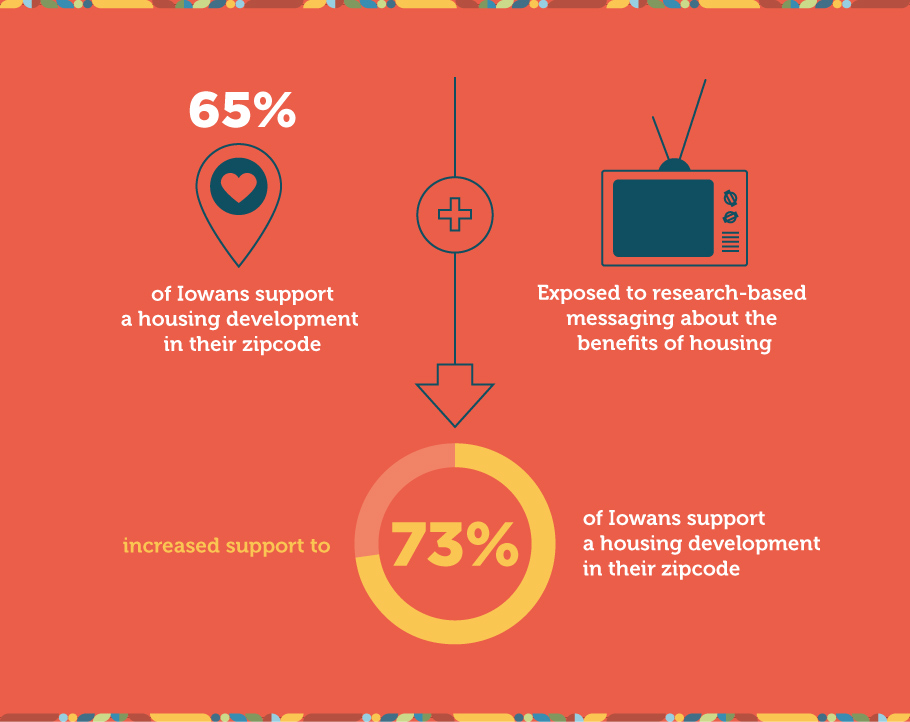Diverse housing options in our communities enhance the strength and prosperity of our economy so all Iowans can thrive.
Housing is a challenge we must address. And we must do it in part, through rebranding the term “affordable housing”. This term has been long-used and over-time inaccurate stigmas have become attached to it. What is affordable housing? Is it housing developed through use of a particular program? Is it housing that Iowans are able to afford without spending more than 30% of their paycheck? The term invites confusion and misperceptions. It’s time to archive this term and call it what it is – housing.
The Iowa Finance Authority and the Iowa Economic Development Authority recently completed first of its kind research on affordable housing perceptions in Iowa. Feedback from a diverse cross-section of the state provided important insights into the most effective messaging on the topic.
Participants were told that a housing developer had proposed building an affordable housing development in their ZIP code. At the end of the survey, participants were made aware that the scenario was fictional. But the learnings were very real.


Having good, affordable homes create major benefits for communities

The occupations priced out of housing

Tenant Story Telling
As a matter of public policy, 72% of Iowans support affordable housing. This support is bipartisan, crosses the urban-rural divide, and is shared by both homeowners and renters. The small number of outliers who oppose housing expansion are more likely than supporters to make their opinions heard. It creates a misconception about where the public really stands.
The groundbreaking research also delivered insights from developers. They confirmed local opposition is a common experience, and that it comes primarily from a small but vocal minority.
They say inaccurate perception influences the success of their projects – with 1 in 3 projects halted and 1 in 4 modified.
Additional insights from the research demonstrate the importance of education and clear communication.
These findings suggest the perception of opposition to affordable housing is inaccurate, or at least incomplete. With levels of support this high, it is fair to say advocates have won the hearts and minds of fellow community members. But, they are losing battles in zoning and city council meetings.
The challenge confronting housing advocates is tactical and led to the birth of Welcome Home, Iowa.